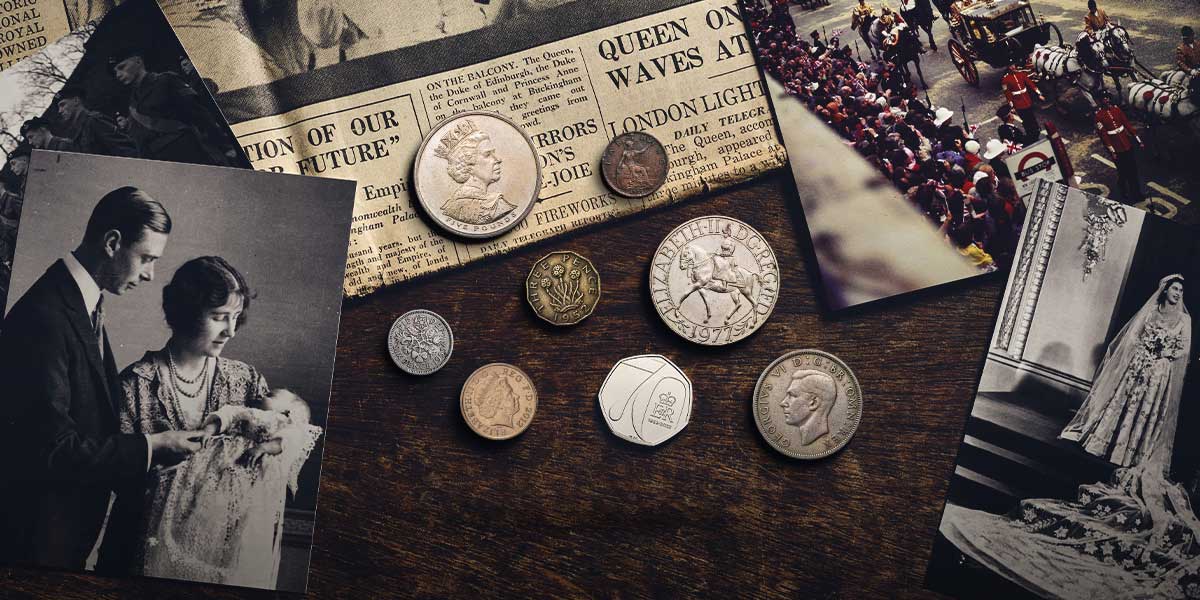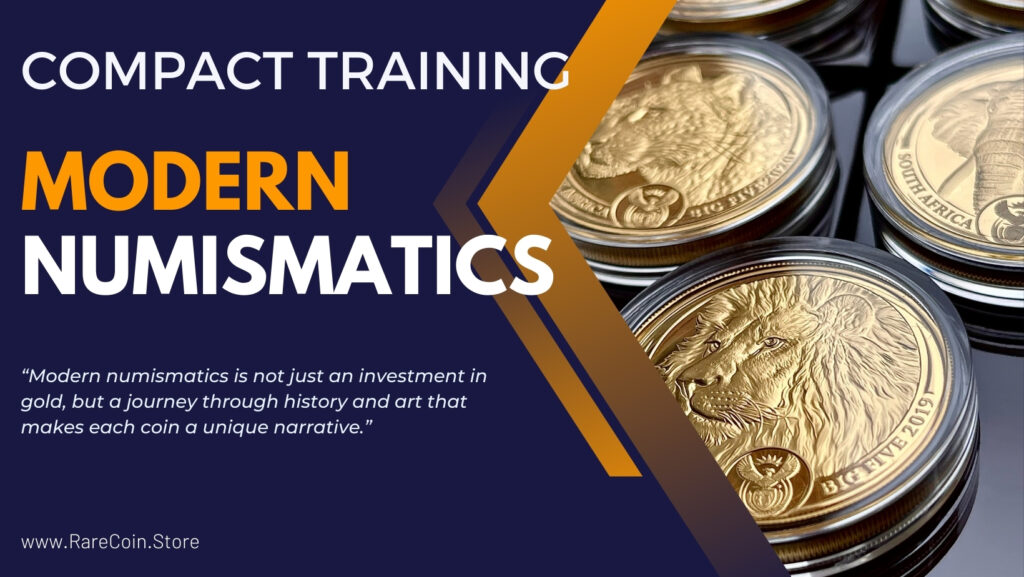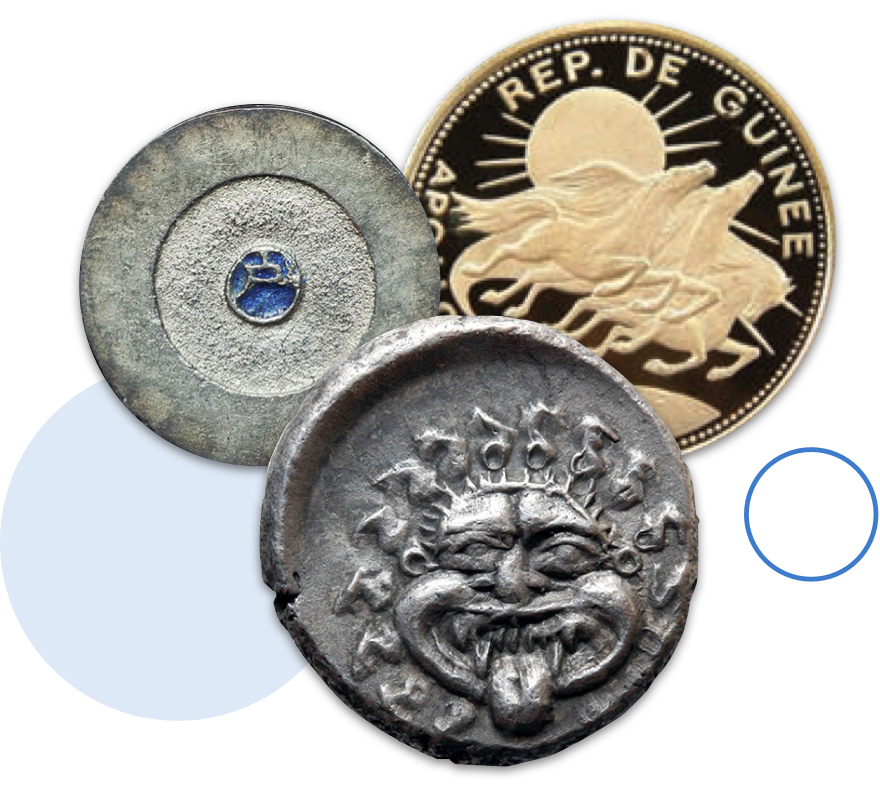Top News On Selecting Coin Collecting And Currency
Wiki Article
What Can I Do With A Database To Research Numismatics Regarding Mints?
The study of numismatics in relation to mints with databases requires specific methods to collect comprehensive data about coin production, historical contexts, and advancement of minting methods. Here's how to go about it: Choose one that is specialized in numismatics and historical coinage. The options include Numista and catalogs online from major mints (like the United States Mint or the Royal Mint), or databases for academics that preserve numismatic research.
Define Research Focus: Specify your research objectives. You might be fascinated by the development of mints, their production, technological advances in minting, or the impact on society and the economy. Tailor your search queries accordingly.
Search Strategy: Add the name of the mint along with any keywords you use that are related to numismatics or mints. Make use of advanced search features to narrow results by the date, the type of document (such as academic reports, historical writings, or catalog entries), and geographic location.
Data Collection: Collect data regarding the date of founding and its period of operation, its types of coins it produced, the technology used (such hand or machine striking) and also any significant changes or events that have affected the minting process over time. Catalogs and databases that detail specific coins according to the denomination, date and style.
Analysis: Examine the data to identify trends and patterns in minting practices across different historical periods or geographical areas. Examine the evolution of coin design as well as changes in the composition of metal and technological advancements which have impacted the production of coins.
Cross-Referencing Verify findings by comparing data from various sources in the same database. This ensures completeness and accuracy when conducting your research.
Documentation - Document your findings, citing sources you consulted and mentioning the methods you used. Keep a log of all the databases you have consulted and the search terms you used, and how relevant each resource is to your research goals.
Keep up to date: Numismatic research changes constantly with new publications and discoveries being discovered. Keep yourself up-to-date by regularly checking the database. It could contain up-to-date information such as newly published documents that have been digitalized or scholarly research.
Follow these steps to make use of databases to conduct thorough research on the field of numismatics and its relationship to mints. This permits a thorough investigation of the historical, technological and cultural aspects of the production of coins and provides valuable insight into the evolution of numismatic practices over time. Follow the top helpful hints for site examples including uncirculated coins, numismatic investment, coin certification, rare coins, coin storage, yen, banknote catalog, coin auction, coin show, franc and more.

How Can I Find Out More About Numismatics With Respect To Exhibitions And Show Events With An Online Database?
For numismatic research, it is important to utilize databases that contain information about conferences, shows, exhibitions and other occasions. This is a step-by-step guide for conducting this kind of research Choose a database: Pick databases that specialize in the field of numismatic events and exhibitions. For instance, websites of major numismatic societies such as the American Numismatic Association (ANA) and online platforms that provide information on global numismatic events and museum exhibition archives.
Define Research Focus: Specify your research objectives. Are you interested in researching upcoming and past numismatic exhibitions, conferences focused on numismatics? Or regional coin shows, thematic exhibitions, or other educational activities? Determine what you're looking for to narrow your search.
Search Strategy: Use keywords such as "numismatic exhibitions," "coin shows," "numismatic events," and include specific event names, locations, or thematic focuses if applicable. You can filter results with advanced search options. This includes filtering by dates, types of events (such as conferences and exhibitions) and geographical regions.
Access data on forthcoming and past numismatic shows and other events. Information on the dates, organizers, and locations of the events, special themes or collections, exhibitors participating, publications or catalogues that are associated with the event and so on. They can be collected. Search databases for databases that provide a online tours or digital access to exhibition materials.
Interpret and analyze the data collected to better comprehend trends, themes as well as the educational and educational impact of numismatic displays and events. Analyze how exhibitions and shows promote public understanding of the field of numismatics, encourage scholarly exchange and highlight significant collections.
Cross-Referencing: Confirm your research findings by cross-referencing data across various database databases, listings of events, and official websites. This will ensure accuracy and completeness when conducting your research. It also provides complete information on events in the world of numismatics.
Documentation: Documentation is crucial. Note sources and the methods you used. List the databases utilized, the search term(s) and the relevance each source has to your question.
Stay updated: Numismatics is a dynamic field, with a variety of conferences, exhibitions, and shows. Information from numismatic organizations, event planners, and special databases are the best way to stay up-to-date with the latest events.
These steps will help you explore numismatics through databases with respect to events and exhibitions. This method allows for a thorough exploration of the diversity and value for education of numismatic exhibitions and other events around the globe. Check out the top banknote display for site tips including silver coins, proof, historical currency, coin die, proof, commemorative, franc, copyright detection, rand, currency history and more.

How Do I Use Databases To Study Numismatics In Relation To Historians And Researchers?
Here's a method for conducting such research:Database Selection: Choose databases that focus on research in numismatics, historical archives, and academic journals, as well as institutions' repository sites. This is a systematic method for conducting such research. JSTOR, Google Scholar numismatic journal (like the ones that are published by the American Numismatic Society), or libraries of universities are all examples.
Define Research Focus: Specify your research objectives. Are you interested in understanding the historical context for artifacts of numismatics, the methods used in numismatic research, specific numismatic topics explored by historians, or in the contributions of scholars in numismatic research? Determine the goal of your research.
Search Strategy: Use words such as "numismatics," "numismatic research," "historical coins," and include particular historical periods, geographical regions or numismatic topics when appropriate. You can also use advanced search to narrow your search results by author affiliation, document type (such dissertations, articles or conference papers) dates, and document type.
Data Collection: Get details on scholarly research papers, articles, and historical archives related to numismatics. Collect information such as the publication title abstract, author, methodology used as well as the historical context analyzed, and much more. Explore databases that provide access to digital collections of numismatics, research projects or other collections.
Analyze the data to better understand the methods and interpretive strategies that historians and researchers employ for numismatic research. Evaluate how numismatic artifacts help to inform larger narratives of history as well as economic studies, cultural studies or political histories. Examine the methods and findings of different researchers working on numismatic topics.
Cross-Referencing. Check that your research is accurate by cross-referencing the information in multiple databases or articles of scholarly value, academic publications, or institutions' repository. This ensures that your research is accurate and complete. Additionally, you can gain a better understanding of the contributions made by numismatics scholars.
Documentation: Documenting your findings is important. Note sources and the methods used. Detail the databases used, search keywords, and the relevance to your question.
Stay up-to-date: Numismatic research and scholarly journals continue change. Stay informed by keeping up with the latest developments published in academic journals, numismatic organizations, and institutional repositories.
Databases can be used to study numismatics in the way it relates to historians or researchers following these easy steps. This method allows for a thorough examination of the methodologies, historical interpretations, and the scholarly contributions that influence the appreciation and understanding of numismatic artworks in broader cultural and historical contexts. View the most popular currency grading blog for site advice including banknote identification, coin news, uncirculated coins, banknote certification, engraving, quarter, mint, forint, coin holder, german coins and more.

How Can I Research Numismatics Using A Database In Online Forums And Communities?
The study of numismatics in relation to forums online and communities entails making use of platforms that let collectors as well as enthusiasts and experts share knowledge, discuss trends, and showcase collections. Here's a structured approach to conduct such research:Database Choice: Select online communities and forums that are specialized in the field of numismatics. For instance, forums such as CoinTalk or Reddit's r/Coins as well as specific communities devoted to numismatics on social media platforms like Facebook groups, LinkedIn, or Facebook groups are a few examples.
Define Research Focus: Specify your research objectives. You might be interested in learning more about current trends in collecting, or talking about certain coin types or historic periods. Perhaps you want to seek advice on the authenticity of your coins or grade them. Clarify your goals to find the right answer.
Search Strategy: Make use of keywords relevant to your interests such as "numismatic forums," "coin collecting communities," "online numismatic discussions," and include specific areas (ancient coins contemporary coins and paper money) or search terms related to the topic you are researching. Use the search functionality within each platform to locate relevant threads and forums.
Data Collection: Go through discussions, threads posts, discussions, and other data in forums online and community. Learn about methods of collecting as well as coin identification markets, trends in the market and personal experiences of numismatic discoveries. Also, talk about historical or cultural aspects related to coinage.
Analysis: Analyze the data to discover the views, knowledge and experiences shared by members of the online community of numismatics. Take note of the expertise, consensus, and quality of discussions among members of the community to assess the data.
Cross-Referencing Check your findings by cross-referencing across communities and forums. Review the information from different platforms to gain a more objective perspective on collecting market trends, market sentiments, or expert advice from the numismatic community.
Documentation - Document your findings in a systematic manner, citing threads, contributors, and discussions as needed. Keep track of key insights, trends and views that are discussed in the forums and communities on the internet.
Be involved Engage in the Discussions: Ask questions and join in discussions to gain knowledge and create connections with fellow members of the numismatic community. Keep abreast of the most recent threads, announcements and replies.
Following these steps can aid you in conducting research on numismatics by using online forums and communities. This approach lets you tap the collective knowledge and expertise of a wide collection of experts and collectors, providing valuable insight and perspectives on different aspects of coin identification and appreciation. Read the most popular coin series recommendations for site advice including banknote errors, banknote errors, peso, coin series, collector, coin forum, coin forum, coin planchet, currency appraisal, obsolete currency and more.

What Can I Do With Databases To Study Numismatics With Regards To Industry Consultants?
Conducting research on numismatics and industry consultants requires using databases that focus on consulting firms, individual consultants, industry reports as well as publications from the numismatic societies. An organized approach is available to help you conduct this kind of research. Examples include listing of businesses, consulting firms' websites and publications from Numismatic Associations.
Define Research Focus: Specify your research objectives. Are you looking for details on the consulting services offered to numismatic businesses and market analysis of numismatics and the expertise of specific consultants or industry consultants within a specific industry? Find out what you're trying to find in order to reduce your search.
Search Methodology: Use keywords such as "numismatic industry consultant", "numismatic consultancy firms" or "market analyses of coins" to locate appropriate results. If applicable you could also include geographical regions and specific areas of knowledge. Use advanced search options by sorting results by specific areas of expertise and the services provided by consultants.
Data Collection: Find information on consulting firms specializing in numismatics and industry consultants offering services to businesses dealing in numismatics. Find information about consultants, such as profiles, areas of specialization (market analysis, collection management, authentication) customer testimonials and the reports written by industry experts.
Analyze the information to understand the roles and contributions made by industry consultants in numismatics. Examine the knowledge and methods employed by consultants in advising on numismatic investments, market trends and collection management strategies and issues of regulatory compliance.
Cross-References: Verify that your information is accurate by comparing it with other databases, publications of numismatic organizations, and reports from the field. This will ensure accuracy and the completeness of your research. It also gives complete information about the consulting market in numismatics.
Documentation: Record all of your findings, including the sources you utilized and noting the methodology you employed. Keep track of details like databases you've accessed and the search terms you used and their connection to your research questions.
Be informed: As the economic conditions change and regulations requirements are updated, so do consulting services and market developments in the field of numismatics. Updates from consulting firms' websites and industry reports, numismatic societies journals, and other publications will keep you up-to-date on the latest market trends and information.
Databases can be used to study numismatics and consultants working in this industry. This technique permits a thorough examination of the market analysis and strategic advice provided by consultants in the numismatics industry. They can offer valuable perspectives on business operations investments, strategies for investment and market dynamics. Have a look at the top rated helpful hints for coin mintmark for site examples including banknote artist, half-dollar, coin production, coin series, coin series, coin show, authenticity, commemorative, banknote design, banknote catalog and more.
